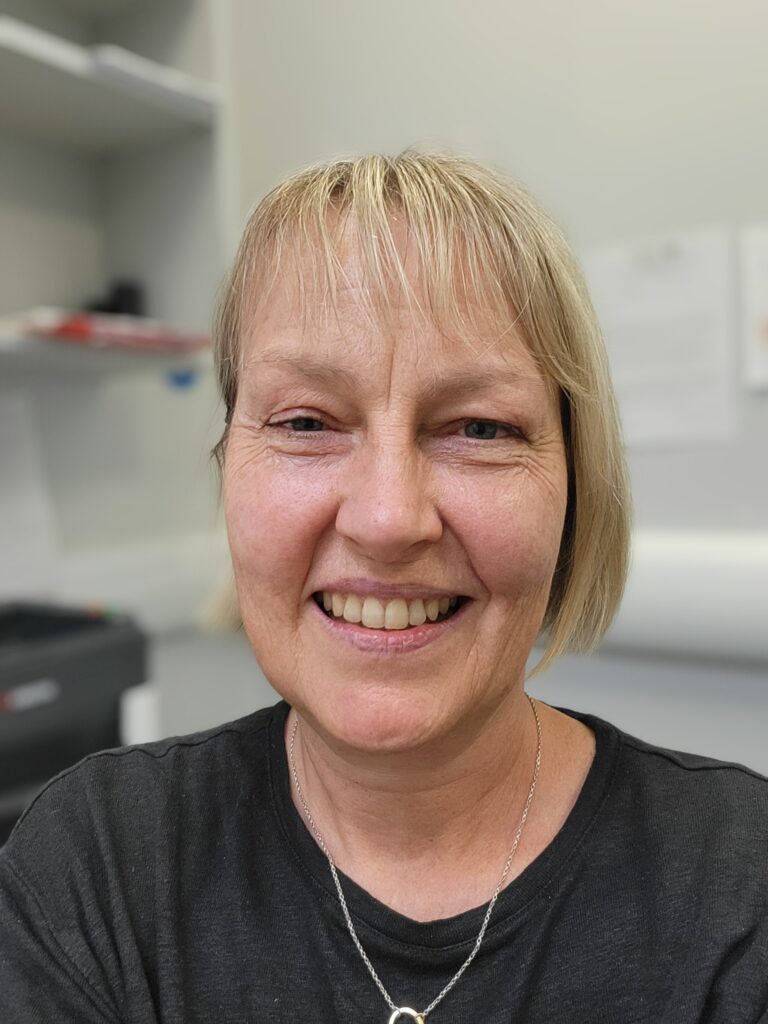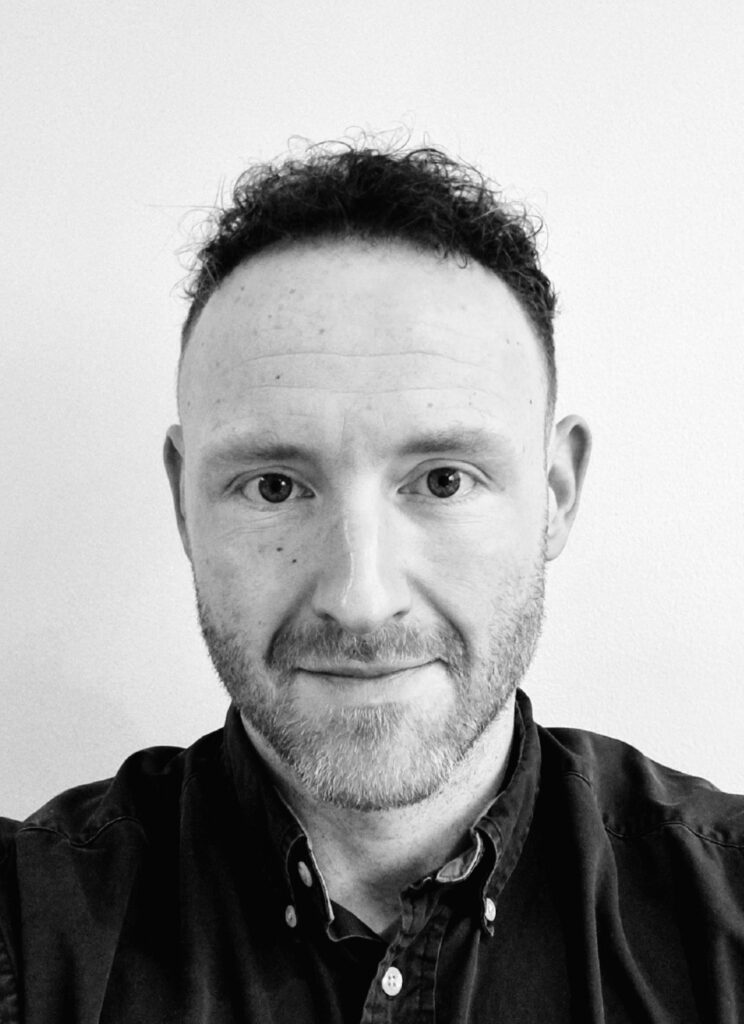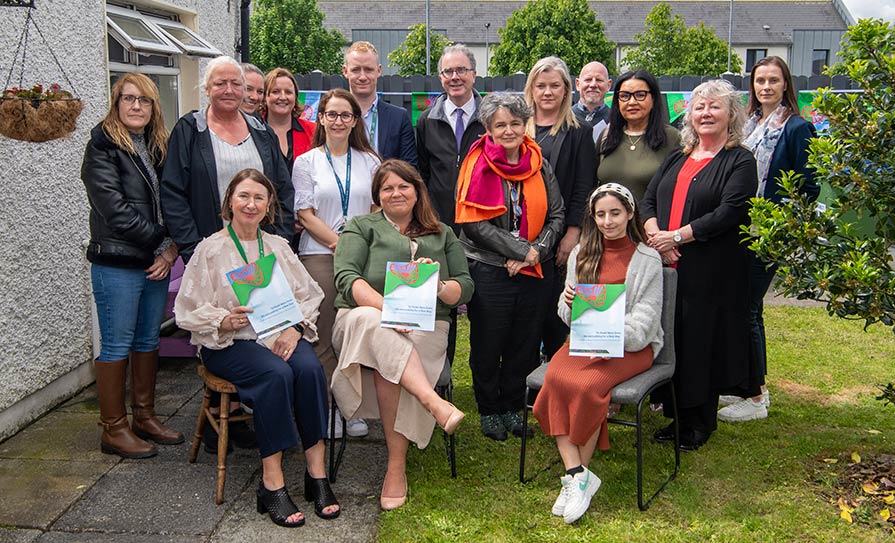The Government has promised a national health plan for the Roma community in Ireland. Paul Mulholland examines the progress made in meeting the healthcare needs of the community and the barriers that continue to exist

Dr Angela Skuce, GP and Medical Director with Safetynet, has been involved in providing care to people within the Roma community for many years. Speaking to the Medical Independent (MI), Dr Skuce emphasised that the quality of care provided to the community at a national level has developed notably in recent times.
“When I started, I was a lone voice in the wilderness,” Dr Skuce told MI.
“I really was banging my head against a brick wall… It was hard to get acute hospitals and mainstream GPs to understand the problems… It really has progressed hugely.”
Despite improvements, Dr Skuce added there is still a lot of work to do to meet the healthcare needs of Roma people.
“It hasn’t improved enough,” she said. “But from my perspective, there’s been a sea change in how people can access care.”
The past decade has seen the publication of various reports and strategies focused on addressing the discrimination and socio-economic inequalities faced by the Roma community in Ireland. These have included recommendations aimed at improving the community’s access to treatment within the health service. A specific strategy for the south-west was launched in May (see main panel). In addition, the intention to develop a national Roma health action plan over the next two years has been welcomed by advocates. However, they stress it is vital any such plan is adequately funded and supported.
Reports
It is ten years since the Logan Report, which investigated the circumstances surrounding the removal of two Roma children from their families. The investigation found that An Garda Síochána failed to critically evaluate the information provided to them about the children and families in question, and that more extensive and discreet enquiries should have been carried out. The report also stated that the fact the families concerned were members of the Roma community played a part in the decision-making process.
Following the report, a national needs assessment was undertaken. Before this assessment, published in January 2018, knowledge about the Roma community in Ireland was limited. The research estimated the population in Ireland to be between 4,000 and 5,000. The mapping identified Roma people from the Czech Republic, Slovakia, Hungary and Poland, with the majority coming from Romania. According to the document, 70 per cent of respondents had been living in Ireland for five years or more, and 63.3 per cent of children in households were born in Ireland.
The assessment highlighted the racism and discrimination Roma people face, particularly in accommodation and employment. The findings regarding healthcare were also stark. Nearly half of the respondents reported not having access to medical cards and GP care. Maternal health was a significant concern, with 24 per cent of women not accessing health services during pregnancy, and only seeking care when giving birth. Additionally, high levels of poor mental health were reported.
The needs assessment was published early in the cycle of the National Traveller and Roma Inclusion Strategy 2017 – 2021, the first strategy of its kind. Among the inter-departmental document’s commitments was for the State to “reinvigorate efforts” to ensure Travellers and Roma people have easier access to the public health service to address some of the underlying health-related challenges they face. However, Pavee Point stated while the strategy had the potential to address significant inequalities for Travellers and the Roma community, it fell short in terms of effective implementation.
Health action plan
Now, after some delay, the successor to the strategy, which will cover the years 2024 to 2028, has finally been launched. For the Roma community, one of the key recommendations is the development of a Roma health action plan, led by the Department of Health, set to be completed by the end of 2026.
A National Traveller Health Action Plan was published in 2022 under the previous strategy. This plan had an accompanying ringfenced budget of €1.3 million to support implementation. Since the launch, no further additional core funding or investment has been made available to support implementation, according to Pavee Point.
Ms Lynsey Kavanagh, Co-Director of Pavee Point, told the Medical Independent (MI) the organisation welcomes the intention to develop a comprehensive plan for Roma health. However, Ms Kavanagh stressed it is essential the plan is “fully resourced, with clear timelines and indicators”.
The action plan will develop work already undertaken by the HSE in the area (see second panel). It will also draw on relevant lessons from Roma heath advocacy projects currently established in Community Healthcare Organisations across the country. For example, in Wexford and Waterford, the local HSE Social Inclusion division funds and supports projects managed by community groups in the area. Services provided include supporting Roma people with the application for and renewal of medical cards, help in making and attending appointments, and the delivery of health literacy programmes.
Another example is the Tipperary Roma health project. This is a collaboration between Youth Work Ireland Tipperary and HSE Social Inclusion. Like the projects in Wexford and Waterford, it aims to improve the health of the local Roma community by supporting access to healthcare and other services. Research published by the project in recent months highlights the lack of adequate accommodation for the community. The findings also stressed the importance of providing advocacy supports to the Roma community, which would assist individuals to access and navigate a range of services. Research has also been undertaken in Cork and Kerry in relation to Roma healthcare. This has led to a new strategy for the area: Te Rodel Nevo Drom/We are Looking for a New Way – A Health Strategy for Roma Families in HSE South-West.
But from my perspective, there’s been a sea change in how people can access care
Accessibility
The consultation process for the strategy found that, predominantly, Roma people in the area appear to have access to GP services. However, the current pressure on the primary care system means that it can be difficult to get an appointment in both Cork and Kerry. Recently arrived and homeless Roma people have difficulties accessing GP services and paying for prescriptions, according to the document. Also, older Roma people who join family members in Ireland for support may have complex health needs, which can be exacerbated by an inability to access health services.
The strategy cites examples of accessible, ‘free’ GP services nationally, such as the Roma clinic in Tallaght, the Capuchin Day Centre and Crosscare, all in Dublin, the Low Threshold Clinic in Limerick, and Simon in Cork.
But the strategy states “it was strongly suggested by service providers that it is more important to link Roma into mainstream services”.
It also recommends exploring the possibility of providing emergency medical cards and prescriptions to those in need, and the development of the current provision of care in Cork Simon for the homeless Roma population.
Dr Don Coffey is a GP who works with the HSE adult homeless integrated health team in Cork, which includes running clinics in Cork Simon. He confirmed that many Roma people have a GP. However, Dr Coffey said the habitual residence condition (HRC) remains a major obstacle to accessing healthcare, particularly for those who are homeless and living in precarious living conditions. The failure to meet HRC criteria, which requires proof of residence in Ireland for a period of time, can result in refusal of a medical card.
“It sounds fairly simple,” Dr Coffey told MI. “To have a utility bill, a contract with your employer, or a contract with your landlord. But a lot of Roma people might be living in fairly overcrowded settings where their name wouldn’t be on the tenancy, where their name wouldn’t be on the utility bill.”
In response to the difficulties Roma people experience in obtaining medical cards, a HSE spokesperson told this newspaper the Primary Care Reimbursement Service has created a specific email address for applications for cards from Roma outreach workers and for queries on these applications (NMCU.Romaqueries@hse.ie).
They also said a webinar information session on the application process was held for those who work with the Roma community in September last year.
Language
Another challenge is interpretation services. Dr Coffey said the interpretation services provided by the HSE for general practice are very good. Also, he pointed out that Cork Simon is “lucky” in that it has a Romanian-speaking staff member, who also speaks other languages used by Roma communities. Dr Coffey said it is important to realise that the Roma community is very diverse and comprises different nationalities. This means getting an interpreter is not always straightforward. Additionally, interpreters can take time to arrange.
“The problem is, if they are homeless, it’s likely they will turn up in crisis and will turn up acutely,” Dr Coffey explained. “So it’s very difficult to plan for those situations.”
Dr Skuce says language is “the biggest challenge” to surmount for Roma people in transitioning to mainstream general practice. While she acknowledged State-funded interpreting services are now in place, she said that access to these services varies.
“A patient might come in and need to be seen and [the GP rings] and they can’t get hold of an interpreter for two days or something … What I do know is the vast majority of GPs have had no training in working through an interpreter and have little experience of it. So, a lot of them don’t use interpreters.”
She added that interpretation is also needed at the reception desk of practices.
“If you don’t speak English, you can’t ring up your GP practice and make an appointment. You can’t even go in and talk to the receptionist to make an appointment. It is still a big gap.”
Dr Skuce said that a number of Roma people with medical cards return to the clinic run in the Capuchin Centre by Safetynet as a result of communication issues with their GP.
The purpose of the clinic is to provide primary care services to marginalised groups and those without access to healthcare in Dublin’s north inner city, with a particular focus on Roma people. Safetynet has adopted a low threshold and flexible model of care provision, with culturally appropriate supports including an on-site interpreter and support worker.
Trust
Dr Skuce told this newspaper the Capuchin clinic has gained a trusted reputation among Roma people in Dublin.
“Trust is a big thing,” she said.
“The Roma community, all across Europe, they’re probably the most discriminated against, marginalised, stigmatised, ethnic group [on the continent]. The countries that they come from, sometimes the hospital wards are segregated, school classes are segregated. In some European countries there was sterilisation of women without consent…. So they often come here very mistrustful of health services. It can take a lot of time to build up trust.”
Services in the Capuchin Centre have evolved over the years. For example, the national needs assessment found diabetes emerged as a significant health issue, with 22.5 per cent of respondents reporting that they had been diagnosed with the condition.
“We were really struggling to manage diabetes in people,” Dr Skuce said, adding that securing hospital appointments, which could take a year, was difficult.
In response to the need, the centre established a monthly diabetes clinic. This is run by Prof Margaret Griffin, Consultant Endocrinologist, who offered her services, with nursing and interpretation support. Dr Skuce stated the initiative has been a great success.
“The results that we are getting from that clinic are better than the national average in terms of blood results, diabetic control, the control of their blood pressure…That’s because we have a nurse, and an interpreter and a diabetologist who all work together and chase people and phone people. They put a lot of work into making it work. But it really, really does work.”
Inclusion Health
Links with the acute service have also improved, according to Dr Skuce, with the establishment of Inclusion Health teams. The clinic works particularly closely with the teams in St James’s Hospital and the Mater Misericordiae University Hospital, both in Dublin.
“We know the main nurses in those two teams; we know them really well and they know us really well, so we are in contact all the time. And that communication is really essential.”
Inclusion Health teams are also in place in the three maternity hospitals in Dublin. Most of the pregnant women seen at the Capuchin clinic attend the Rotunda Hospital for antenatal care, where an inclusion midwife is in place. Given the concerns over maternal care identified in the needs assessment, last year Pavee Point published Le Romneango Sfato, Roma Women’s Voices: Experiences of Maternal Health Services in Ireland. It makes several recommendations, including the development of a care pathway for Roma women accessing maternity services in partnership with groups working with the community.
Dr Skuce said the inclusion midwife at the Rotunda is a vital component in providing integrated care for pregnant Roma women.
“And she just completely understands it. She understands that if somebody doesn’t turn up for an appointment, it’s not because they couldn’t be bothered; it’s because something has gone wrong in the communication.”
GP clinics

There has also been recent progress in the provision of ‘free’ GP clinics for Roma people. The clinic run by Safetynet in Tallaght has been taken over by a local practice, ‘GPs at Tallaght Cross’. The original Safetynet model in Tallaght was the basis for a mobile outreach clinic, specifically for the Roma community, in Carrickmacross, Co Monaghan. Recently, Dr Eoin McDermott, who helped establish the initiative, was approached to assist in the provision of a clinic for the Roma community in Dundalk, which will be run by the local HSE Inclusion Health team. The clinic, which is planned to open shortly, will be dedicated to providing comprehensive primary care services to the local Roma community, including mental health support.
“Years working alongside the Roma community have shown me the significant cultural and practical barriers they face in accessing healthcare,” according to Dr McDermott, who has been a GP with Clermont Health in Dundalk since 2019.
“Applying to local GPs can be daunting, and attending appointments can be challenging… Through this excellent HSE initiative, we aim to bridge this gap by providing high-quality, accessible, and culturally sensitive primary care.”
Dr Coffey said the provision of free primary care services is essential. However, he added that the goal should be for more of the Roma community to be seen within mainstream general practice.
“That’s really what we all should be aiming for.”
A new direction for Roma health in the south-west
For the past decade, the Tralee International Resource Centre (TIRC) has worked to support Roma families in Kerry. In 2018, TIRC, funded by Tusla, initiated research to create a socio-demographic profile of the Roma community in the county. This work led to the TIRC, with the support of the HSE, developing a new strategy to address the health needs of the community in Cork and Kerry.
Te Rodel Nevo Drom / We are Looking for a New Way – A Health Strategy for Roma Families in HSE South-West was launched in May. It emerged from a consultation process headed by Dr Patricia Kennedy (PhD), School of Applied Social Studies, University College Cork, who had also led the national needs assessment.

The consultation process was conducted between January and April 2023. Working alongside Dr Kennedy were staff from HSE Cork Kerry Community Healthcare. Crucially, the team also included Roma representatives who provided insights based on their lived experiences.
“It was very much working with them as peer researchers, acknowledging that they’re the experts,” Dr Kennedy told the Medical Independent.
“They are Roma, they’ve lived in the community, they know the issues.”
At the launch of the document, peer researcher Ms Marcela Venzel said: “This strategy for Roma health needs was researched in our community. It represents our Roma world and our journey today.”
Another peer researcher, Mr Isac Ianko, added: “This work, which we have been part of, shows clarity and simplicity. All of the findings mentioned in this strategy are essential to our Roma community.”
The team also collaborated with various NGOs and State agencies to identify the health requirements of the community, and barriers to accessing services.
Findings
It is estimated that over 400 Roma individuals live in Kerry and potentially twice that number in Cork.
With regard to healthcare, trust issues between service users and providers were identified as significant barriers. The role of trusted Roma peer workers was identified as crucial in bridging this divide. The research highlighted a pervasive lack of understanding among the public and service providers regarding the diversity within the Roma community. The experiences of Roma people fleeing war in the Ukraine require special attention, according to the document.
The strategy states the Roma community’s history of adversity, including racism, exclusion, financial hardship, and historical persecution, necessitates a trauma-sensitive approach across all policy, cultural, and practical domains.
“Barriers to accessing health services include precarious living conditions, discrimination, the habitual residence condition, accessing PPS numbers, health literacy, and language, cultural and economic barriers,” according to the document.
A number of recommendations are put forward. They include: The urgent need to appoint Roma health workers; the requirement for a standardised ethnic identifier across health services to monitor health outcomes for the Roma population; the development of engagement strategies with primary care providers; and more supports around maternal health, mental health, and Roma people experiencing homelessness.
Access to screening was identified as a particular need and mobile clinics and outreach work were recommended as essential.
According to the strategy document, the recommendations are practical. It says some of these can be implemented immediately, while others require long-term planning. An annual review will track progress on these actions. The strategy calls for a multi-agency response and the formation of an inter-agency steering group.
Dr Kennedy said some of the recommendations will require additional funding to implement.
“But it’s also about making existing services more accessible,” she said.
“People talk about Roma being hard to reach. They are not hard to reach; there’s no such thing.”
HSE initiatives to improve Roma healthcare
A spokesperson for the HSE told the Medical Independent that the Covid-19 pandemic highlighted the importance of addressing the inequities faced by marginalised groups, such as the Roma community, within the healthcare service.
The spokesperson said the new inclusion strategy will address Roma health issues on a national level. They said this will develop work that has taken place over the last number of years.
Recent initiatives include:
Roma Health Network Ireland
The HSE National Social Inclusion Office (NSIO) has established a new national group to address Roma-specific health issues. The group convenes once per quarter and has representation from all HSE regional areas, projects supporting Roma, and members of Roma communities.
Roma maternal healthcare working group
Supporting Roma mothers during pregnancy and birth is one of the objectives of the NSIO.
The working group, which was established in 2021, has instigated a number of maternal healthcare initiatives to support Roma women to access maternal healthcare.
- Roma Daja – Supporting Roma women during and after pregnancy is a free booklet and online resource from the HSE, with advice for Roma women for each stage of pregnancy and the first few weeks after birth. The resources are designed as an aid for healthcare professionals to communicate more effectively with Roma women. The booklet and online content are available in English, Romanian, Czech and Slovak.
- Cultural competency and anti-discrimination pilot classes were launched in the Rotunda Hospital, Dublin, in late 2023. Following the pilot, it is hoped to extend the classes to other maternity hospitals.
Roma mental health and wellbeing working group
In May 2023, the Roma mental health and wellbeing working group was formed. It comprises members from HSE Mental Health, the NSIO, Roma peer support workers, the community development group Cairde, and Pavee Point. The group assessed www.yourmentalhealth.ie and initiated discussions on alternative approaches for conveying mental health information and accessing services within the Roma community.













Leave a Reply
You must be logged in to post a comment.